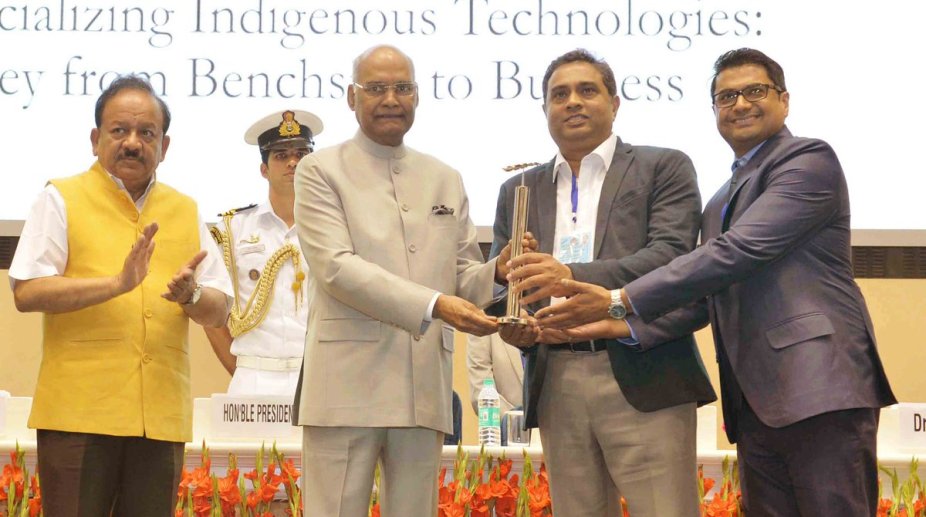President Ram Nath Kovind addressed the National Technology Day Celebration at Vigyan Bhavan in New Delhi on Friday, 11 May. The Day is celebrated every year to commemorate the 1998 Pokhran nuclear test. Speaking on the occasion, the President recalled how India demonstrated its capability before the world both as a nuclear state and a mature user of the powerful technology.
Calling the decision of the then NDA government led by Prime Minister Atal Bihari Vajpayee a “bold” one, President Kovind said that the success of the tests eventually shaped our foreign policy.
Advertisement
“In 1998, the govt of the day took the bold decision to go ahead with the tests – and reposition India on the global stage,” the President said in his address to the gathering.
“Those tests had a far-reaching impact on our foreign policy and eventually our international technological collaborations,” he added.
On the occasion, President Kovind acknowledged the immense contribution of former president the late Dr APJ Abdul Kalam.
“We remember my predecessor as President of India, Dr A.P.J. Abdul Kalam, who led the dedicated scientific team that made preparations for the Pokhran tests. We also remember the leadership and courage of our then Prime Minister, Shri Atal Bihari Vajpayee,” he said.
Citing examples of Indian Regional Navigation Satellite System (IRNSS) and Chandrayaan, The President said that India’s march towards becoming a technology powerhouse, especially in areas of atomic and space technology, began immediately after Independence.
“Today, we have expanded to best-in-class capacities in communication technology, IT, pharmaceuticals and biotechnology. This has changed perceptions about our country and helped both our people and our economy,” he said.
The President said that technology is destiny, but technology must also be equity. Its fruits must be accessible to all. He also underlined the need for integration of gender equity with technology production and technology sharing, and called for more women to enter the technology and innovation space.
“Those who are already working here are doing a remarkable job, but their numbers need to improve. And improve urgently,” he said.
At the event, the President honoured young innovators for their work and praised them for “moving ahead with daring, with risk-taking ability and with ingenuity”.
“Beyond the products and processes, it is this new energy among our technology incubators that is refreshing,” he said.
“The achievements that we have applauded today range from a vaccine that will help defeat rotavirus , which is a leading cause of diarrhoeal deaths among children, to a low-cost but high-performing diagnostic machine for kidney and other non-communicable illnesses,” the President said.
The President said that now we have to explore new frontiers. The government has proposed to establish Centres of Excellence to train young technologists in robotics, artificial intelligence, digital manufacture, Big Data Analytics, quantum communication, and in the Internet of Things.
“Our effort to fight pollution, whether in the air of our cities or the water of our rivers, needs a force multiplier in the form of technology. Our goal is a technology society and our means to that goal too will incorporate technology. Technology is our destiny,” he underlined.
Today is the 20th anniversary of the Pokhran nuclear test. India carried out five nuclear tests on 11 and 13 May 1998. While three tests were carried out on the first day, two tests were conducted on the second day.
Operation Shakti, the codename for the tests, was actually India’s second nuclear test. Following the tests, then prime minister Atal Bihari Vajpayee declared India a nuclear state – the sixth to join the ‘nuclear club’ of nations. Though India became a nuclear power, it never signed the Nuclear Non-Proliferation of Treaty (NPT) – an international treaty that has signatories such as the US, Russia, the UK, France, and China. India, however, follows all the rules laid down under NPT.
On 28 and 30 May 1998, Pakistan, too, conducted nuclear tests becoming the second major power in South Asia to have nuclear technology for warfare.











